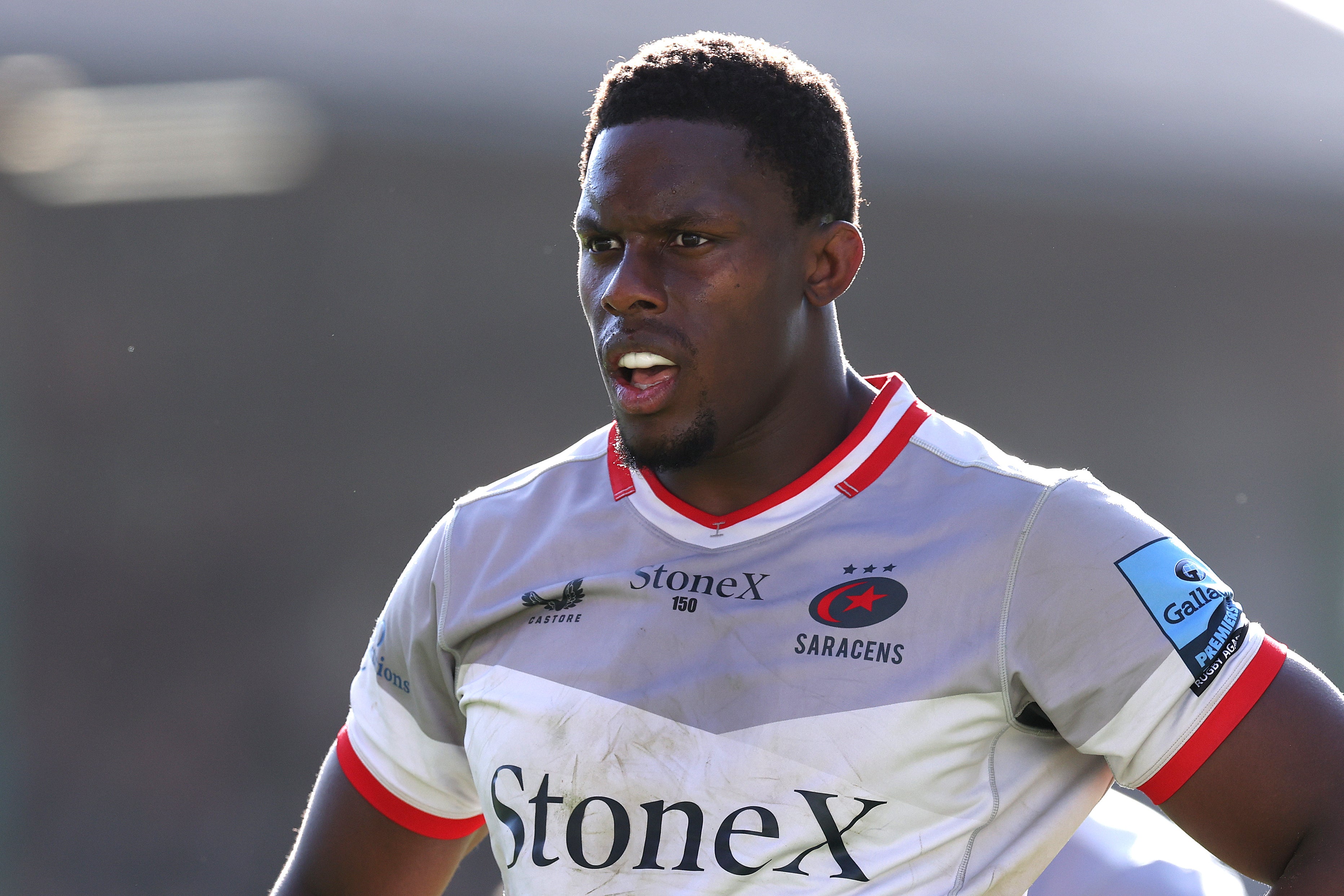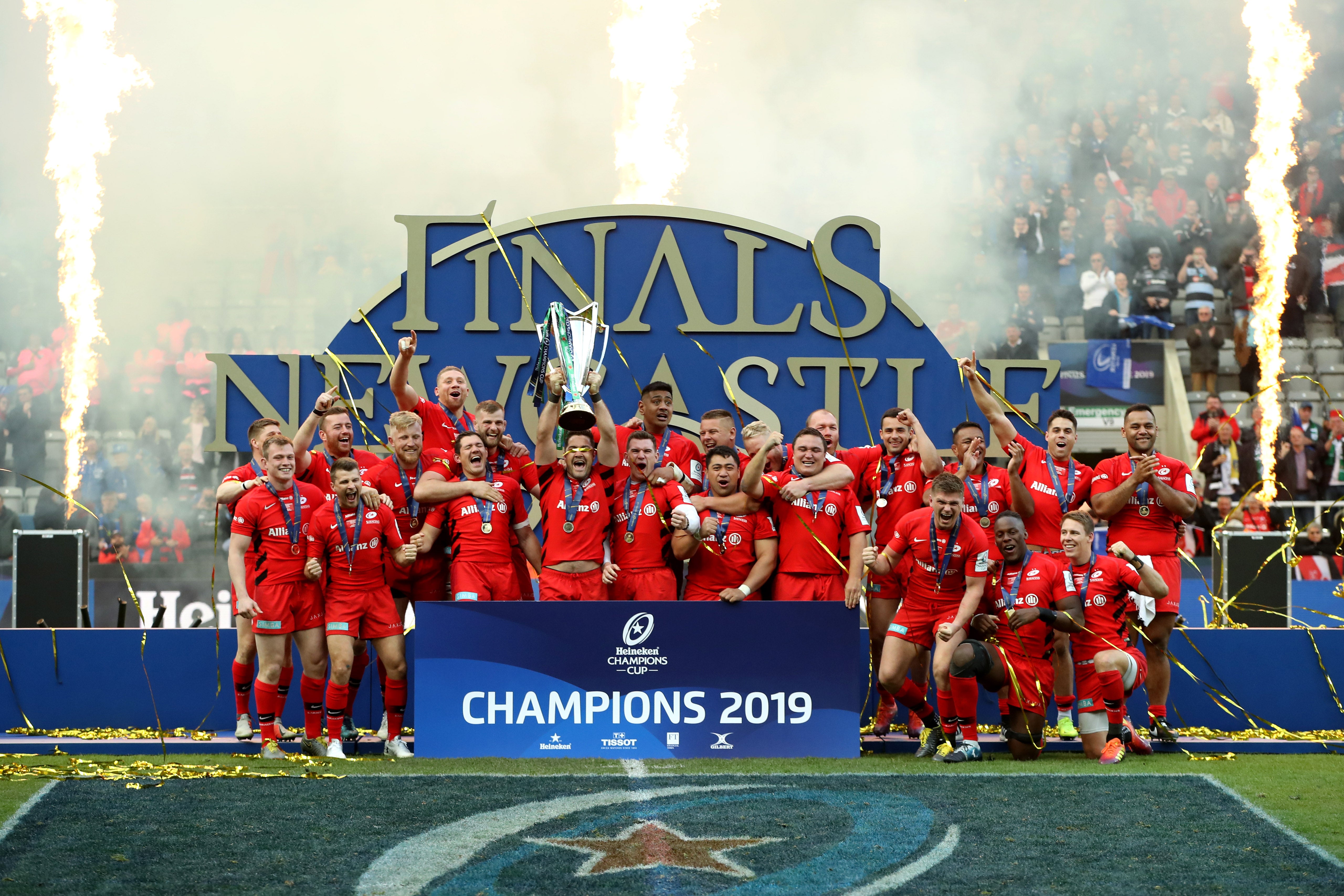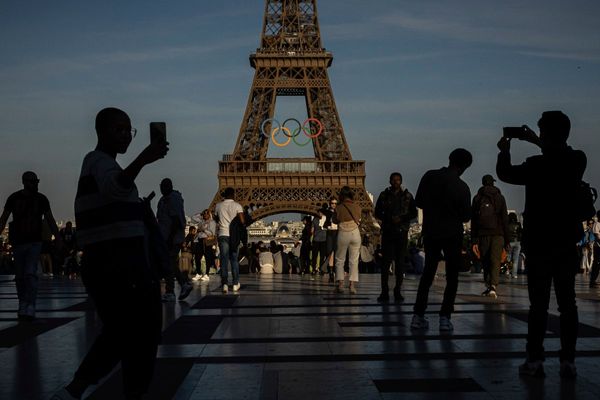
It was the sight that no English rugby fan wanted to see. After 80 gruelling minutes at Welford Road last Sunday, Maro Itoje sunk to a knee, the lock clearly spent. It takes a lot to bow the England and Saracens captain but his exhaustion was clear; it was not just the strain of a gutsy Premiership win over Leicester taking its toll but the lingering impacts of a physically, emotionally and mentally draining Six Nations campaign, too.
English rugby’s iron man has played all 80 minutes of his side’s last 30 Six Nations games. Saracens’ win at Tigers was his 24th start of the season, a tally matched only by Northampton’s Tommy Freeman. Last season, encompassing the World Cup warm-ups and tour of New Zealand, Itoje’s campaign ran from 12 August to 13 July; this year, the 30-year-old will very much hope his final outing is in British and Irish Lions red in Sydney on 2 August.
In such a landscape, something has to give – and this weekend, it has. Itoje – plus club and country colleagues Jamie George, Ben Earl, Tom Willis and Elliot Daly – will play no part in Saracens’ Investec Champions Cup last-16 tie at Toulon. Under the new Professional Game Partnership (PGP) signed by the Rugby Football Union, Premiership Rugby and the Rugby Players’ Association in September, England’s Six Nations regulars must stand down from one of the first three fixtures after returning to their club. That same agreement does, though, set out a limit of 30 matches per season, a figure Itoje and others appear likely to blow past.

“Something has got to give somewhere,” Saracens boss Mark McCall admitted this week. “We were required to rest these players at one point in the three games after the Six Nations and we chose this one.
“Lions years and World Cup years are particularly challenging from [a workload] point of view. If you look at Maro’s playing programme for the last five years, you’ll find that in the non-Lions years and non-World Cup years, he was at 23 or 24 games in some of those years. Over the last five years, he will have averaged under 30 games, which is the approximate number of games that have been suggested in the guidelines.
“I suppose if you are playing 30 games a year, you have got 22 weekends where you are not playing. That’s 40 per cent of your weekends. That’s a lot of weekends where you are not playing. There just has to be a balance. Not playing games is not the only way to manage a player. After the New Zealand tour in the summer, we gave our players an extra week off – six weeks instead of five weeks – because we realised just how tough a year that had been for them. When they are with us, they don’t train all the time. If you have one day off a week, all of a sudden you have 30 more days off a year. There are different ways of managing players.”
Saracens will still travel with hope of causing a shock but their message about the competition is clear. Perhaps their decision, made months ago, was driven in part by the fact that even an unlikely success at the Stade Felix Mayol would only secure a quarter-final tussle with an imperious Toulouse; their hopes of a throwback continental conquest appear slim. But it is hard to imagine them having reached the same conclusion during their, and the European Cup’s, pomp.

For McCall’s call is just the latest blow to a tournament seemingly facing greater and greater challenges. This is the time of year in which the Investec Champions Cup usually bursts into life, the coming of spring heralding the blooming of the knockout stages and the sort of action that made this the best club rugby property in the world in its heyday. For the group stages can be a bit of a slog, held entirely during the winter chill and eliminating only eight of the 23 entrants, while the inclusion of the South African sides have so far caused more logistical headaches and negative headlines than positive impact, with insiders suggesting buy-in from the nation has been a problem.
The format still requires a rethink: Ulster qualified for the last-16 having won just one of their four group games, while it remains ridiculous that eight of the 10 Premiership clubs qualify.
And all the more so, given that hopes of an English winner appear slim, with clubs no longer able to match the resources and superior player development of Leinster and the biggest French sides. Northampton, out of the play-off race domestically, can shift their focus to the Champions Cup and have shown their high potential by beating the Bulls in Pretoria, but it feels a long shot that they will be in the mix come finals weekend in Cardiff in late May.

It raises the question of what it will take for an English side to triumph in Europe again – though McCall believes that such matters are cyclical. Saracens recently hosted 11 of Toulouse’s academy coaches, including former All Black Jerome Kaino, who recalled how a now-dominant side providing the template for the success of the French national team were struggling not so long ago.
“We played them in a Champions Cup match in 2016, and Toulouse were in a funny period at that point. We won quite easily [28-17] in a half-empty stadium. The big change was they were determined to promote from within, and felt they had a good crop of players in their pathway. They thought that if they were patient, they could bring them through.
“I think they came fifth in the Top 14 in 2016, but then 12th the year after, having made the decision to promote from within. They reaped the rewards from their approach, their patience and the whole club and public were on board with what they were going to do.
“There’s definitely a difference in squad depth between the elite French clubs, Leinster and some of the Premiership teams who need to be fortunate with injuries. You have to have a healthy squad if you’re English.
“There’s a lot of young talent in England at the moment. If we can harness that talent, and are patient with it, it can change, as it changed in France. It’s not just about a higher salary cap. You can see a lot of younger players playing across the Premiership. They’re playing younger and younger, they’re physically and emotionally more ready for these kinds of games, and I think that’s the route back.”
Saracens boss defends resting England stars for Champions Cup clash after claims of disrespect
British & Irish Lions 2025: Predicting the squad to tour Australia after the Six Nations
Steve Borthwick backs ‘outstanding’ Maro Itoje for British and Irish Lions captaincy
Worcester Warriors return confirmed as club earn entry into revamped second tier
Bill Sweeney survives but unedifying saga has done English rugby little good
Former Australian rugby star Jordan Petaia signs NFL deal with Los Angeles Chargers







